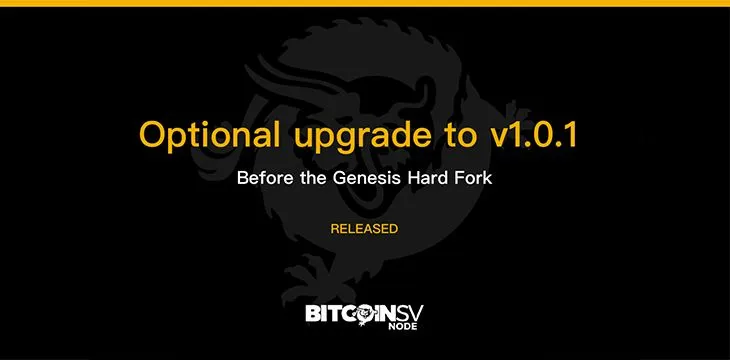|
Getting your Trinity Audio player ready...
|
The Bitcoin SV node team has issued an optional upgrade to the Bitcoin protocol: v1.0.1, aimed at nodes intending to process larger block sizes. While it remains necessary for all nodes to upgrade to 1.0.0 before the Genesis hard fork on February 4, 1.0.1 is for those looking to handle large-scale volumes.
https://twitter.com/BitcoinSVNode/status/1222165511376498694
1.0.1 upgrades the database format for storing blocks over 4GB in size. It also reduces the memory requirements for the remote procedure call (RPC) interface for “getrawtransaction” and verbose versions of “getblock”, again aimed at those looking to process large transactions.
For a full rundown of 1.0.1’s optional features and improvements, see the developer page.
Once Genesis is activated, there will be no maximum limit to block sizes in the Bitcoin protocol. Mining operations can choose to set their own limits, allowing those with larger capacity to specialize in handling larger transactions—and thus receive income from larger fees.
Mining specialization is one of Bitcoin SV’s key selling points. Rather than limiting block sizes to 1-4MB for everyone, like BTC, BSV sees a future where those running large enterprise-scale applications on the blockchain negotiate with professional miners to process their data. Blocks and transactions on BSV can also process in parallel, meaning one large block won’t clog the network.
This is also necessary for blockchain (read: Bitcoin) to scale to the proportions needed to compete with existing networks—financial and otherwise. Though it’s existed for 11 years now, Bitcoin has struggled to gain much traction outside the world of enthusiasts and traders. Limited network capacity has played a large role in stunting growth.
Solutions like second-layer transaction processing include BTC’s Lightning Network, which theorizes that the main blockchain should be used only to settle groups of smaller transactions, grouped together after a period of time. However this removes much of the Bitcoin blockchain’s auditability, as most transactions don’t occur on the blockchain. It also defeats much of Bitcoin’s original purpose, and adds security risks.
As well as other more minor enhancements for large-volume nodes, 1.0.1 contains a number of other fixes and improvements, including extra instructions for those developing with Visual Studio on Windows and tweaks to default settings for times and validating/invalidating blocks.
However these are not considered necessary for everyone, and 1.0.0 is the only software nodes must install before February 4. Once Genesis is activated, Bitcoin begins a new era of scaling and data processing potential since many previously removed features will be restored and unnecessary features that were not part of the whitepaper are getting removed. Finally Bitcoin will be ready to grow as originally intended on BSV.

 07-18-2025
07-18-2025 





